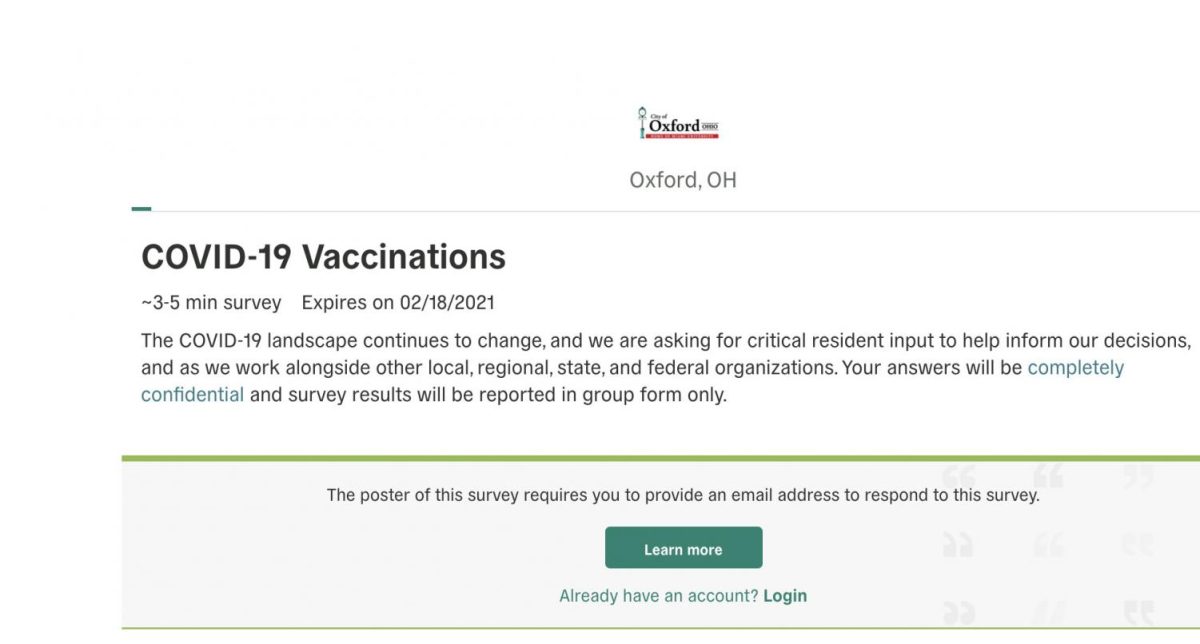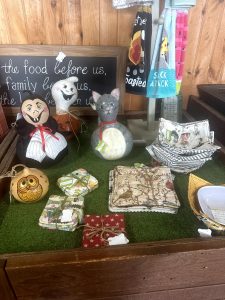Oxford launches survey to determine COVID-19 vaccination responses
A screenshot of the first page of the COVID-19 vaccination survey that is posted on the city of Oxford’s website.
February 5, 2021
The City of Oxford launched a survey through the city’s website Jan. 21, seeking to gauge residents’ feelings and opinions about COVID-19 vaccinations.
The survey was created by City Manager Doug Elliott with help from POLCO, an online community engagement firm based in Wisconsin.
“We wanted to do this vaccination survey because obviously we’re in the beginning stages of getting our population vaccinated,” said Elliott. “As more and more vaccines become available, folks will be able to become protected.”
Assistant City Manager Jessica Greene said the survey is being used to build a database of names that the city can potentially reach out to if it gets a large enough quantity of the vaccine to start a community vaccination campaign.
“We’re nowhere near that yet, but the idea is to try to be proactive. It was also a test case; this (survey software) is a new service we have, and we just wanted to try it out and see how the public responded,” Greene said.
The survey asks the public general questions about their opinions on the COVID-19 vaccines, such as: “which of the following is your current plan for the COVID-19 vaccine?” followed by five options ranging from “I’ve already been vaccinated,” to “I don’t have enough information to make a decision at this time.”
“Basically, this will give us an idea of what the plans are of folks who take this survey. Some of the older residents have already been vaccinated or will be vaccinated soon,” said Elliott.
Butler County is in phase 1B of the state’s vaccination rollout, which means people 65 and older are now eligible to schedule a vaccination appointment with their doctors or other participating sites.
This survey is acting as a trial for future POLCO surveys. The city is preparing to send out a survey to a random sample of Oxford’s population asking about local police practices, Elliott said.
The COVID-19 vaccine survey is also being used to determine whether the city needs to intervene and sway the public’s opinion about the vaccine.
“If we have a large majority of the population that do not plan on getting the vaccination, and let’s say that of that population, most of them are students, we need to figure out how to convince those students that getting the vaccination is a good idea,” said Elliott.















